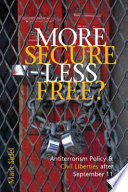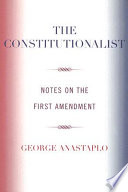 | Robert E. Denton - 244 pages
...the substantive evils that Congress has a right to prevent. It is a question of proximity and degree. When a nation is at war many things that might be...its effort that their utterance will not be endured as long as men tight, and (hat no court could regard them as protected by any constitutional right.... | |
 | Robert E. Denton - 244 pages
...the substantive evils thai Congress has a right to prevent. It is a question of proximity and degree. When a nation is at war many things that might be said in time of peace are such a hindrance to ils effort that their utterance will not be endured as long as men fight, and that no court could regard... | |
 | Justin Kaplan - 2004 - 420 pages
...cause. "When a nation is at war," said Mr. Justice Holmes, "many things that might be said in times of peace are such a hindrance to its effort that their utterance will not be endured so long as men will fight." As Walter Lippmann was to point out after the war, it was impossible to have propaganda... | |
 | Mark Sidel - 2004 - 246 pages
...circumstances are justified "[w]hen a nation is at war [because] many things that might be said in times of peace are such a hindrance to its effort that their utterance will not be endured."6 The Sedition Act of 1918 continued this treatment. Forced detentions were an issue once... | |
 | Mark Tushnet - 2005 - 278 pages
...would, absent the emergency, be unjustified intrusions on civil liberties. As Justice Holmes put it, "When a nation is at war many things that might be...could regard them as protected by any constitutional right."5 Holmes might be read as expressing a resigned acceptance of the inevitable, but it is better... | |
 | George Anastaplo - 2005 - 918 pages
...the substantive evils that Congress has a right to prevent. It is a question of proximity and degree. When a nation is at war many things that might be...will not be endured so long as men fight and that no 6'ourt could regard them as protected by any constitutional right. It seems to be admitted that if... | |
 | Ted Gottfried - 2006 - 150 pages
...as summed up by Justice Oliver Wendell Holmes Jr. in another antiwar case of the period, was that, "when a nation is at war, many things that might be...effort that their utterance will not be endured." Debs went to prison. In 1920, while still there, he ran for president one more time and received almost... | |
 | Geneva Overholser, Kathleen Hall Jamieson - 2005 - 518 pages
...justices said that Schenck's actions created "a clear and present danger." According to majority opinion: "When a nation is at war many things that might be said in a time of peace are such a hindrance to its effort that their utterance will not be endured so long... | |
 | Paul W. Kahn - 2009 - 333 pages
...danger."); Schenk v. United States, 249 US 47, 52 (1919). ("When a nation is at war many things which might be said in time of peace are such a hindrance to its efforts that their utterance will not be endured so long as men fight... no Court could regard them... | |
 | Joseph Margulies - 2007 - 354 pages
...that was said in the circular would have been within their constitutional rights. . . . [ But w] hen a nation is at war many things that might be said...regard them as protected by any constitutional right"). 10. Spatial disorientation is a well-recognized phenomenon. Among others, the US Air Force Research... | |
| |